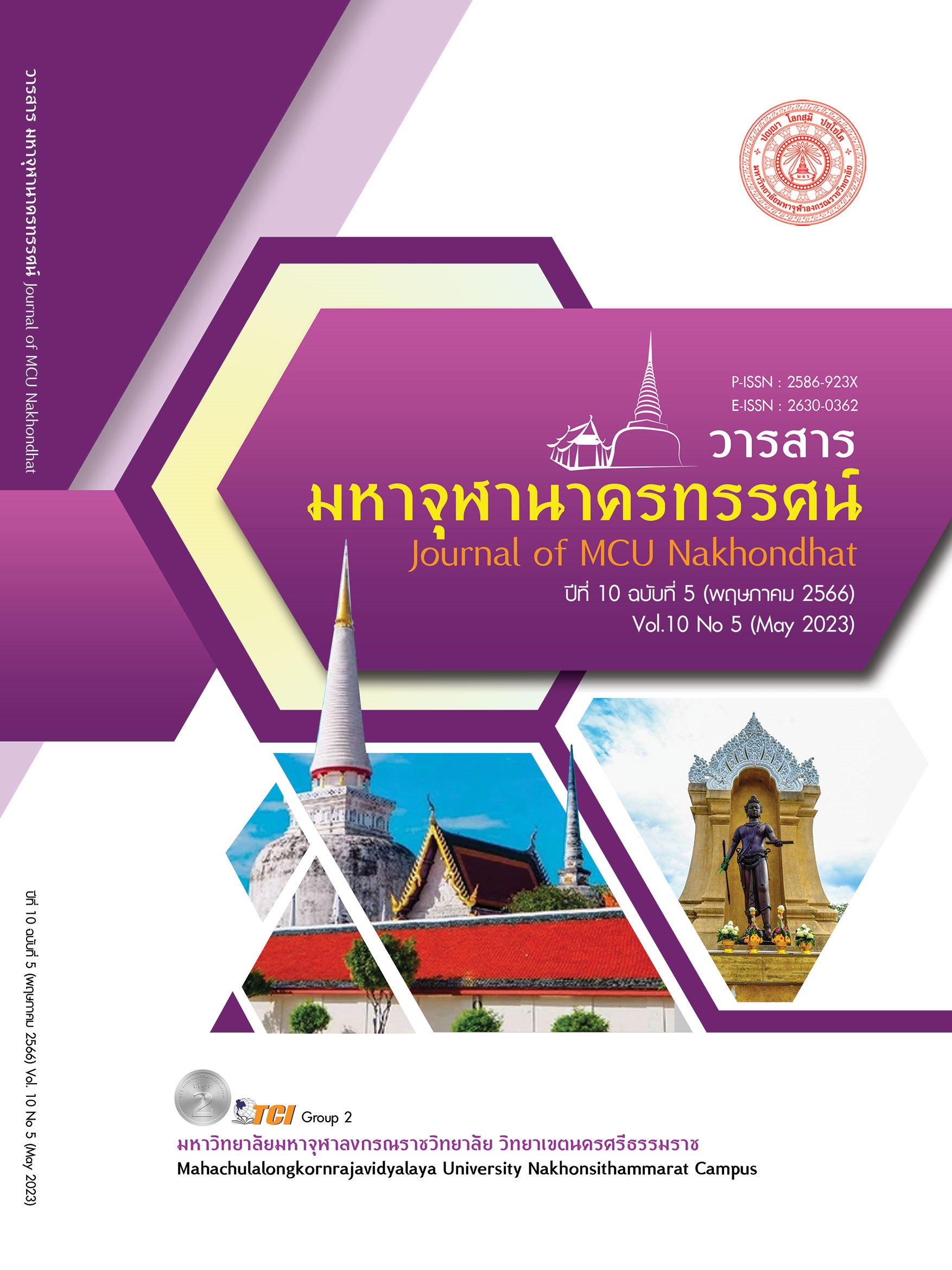THE STUDY ON CREATION OF MUSIC PROGRAMS WITH COPYRIGHT FROM ABROAD OF WORKPOINT CHANNEL NO.23
Main Article Content
Abstract
The objective of this research is to study the production process and the creation of copyright music programs from foreign countries of Workpoint No. 23. This is quality research that uses data description from in-depth interview methods. The sample group or information provider that has been selected for specific samples is personnel in the production of television programs that have a broadcast during the years 2013-present. Using an analysis of metaphor by analyzing information from in-depth interviews to analyze and data analysis from reading interviews or various related news articles. The results of the production process found that Creating copyright music programs from foreign countries and creative music programs are differences in the process of thinking, structure, work methods, limitations and regulations and images. Which the copyright owner will send an expert team to distribute and be a consultant throughout the transaction. However, there is still the same matter in the matter. Procedures of production and shooting Including using a professional team to work in various processes. Creativity findings found that Creation of licensed music programs from foreign countries is difference from a music program that is created by oneself, which is additional thinking and adjustment but still maintains the concept of copyright, production preparation has to determine the scope and content from the creativity in the content and the form of producing copyrighted programs adapting to suit the audience. In common is a more modern style. Consider broad castable content including creating complete content in all dimensions.
Article Details

This work is licensed under a Creative Commons Attribution-NonCommercial-NoDerivatives 4.0 International License.
References
กรุงเทพธุรกิจ. (2558). เวิร์คพอยท์ชูเกมโชว์-วาไรตี้ ย้ำผู้นำเรทติ้ง-ปรับค่าโฆษณา. กรุงเทพมหานคร: กรุงเทพธุรกิจ.
ชนนิกานต์ พฤกษ์สมบูรณ์. (2549). การผลิตรายการเพลงทางสื่อโทรทัศน์ : ศึกษาเฉพาะกรณีรายการอี-เมาท์ ของบริษัทแกรมมี่เทเลวิชั่น จำกัด. ใน วิทยานิพนธ์วารสารศาสตรมหาบัณฑิต สาขาวิชาการบริหารสื่อสารมวลชน. มหาวิทยาลัยธรรมศาสตร์.
ปมุข ศุภสาร และพิไลวรรณ ปุกหุต. (2530). องค์ประกอบที่จำเป็นของการจัดรายการวิทยุโทรทัศน์ (พิมพ์ครั้งที่ 3). นนทบุรี: มหาวิทยาลัยสุโขทัยธรรมมาธิราช.
ปองพร พิทากร. (2557). บทบาทของ Production House ต่อรายการที่ซื้อลิขสิทธิ์มาจากต่างประเทศ: กรณีศึกษา รายการเดอะวอยซ์ เสียงจริง ตัวจริง. ใน วิทยานิพนธ์วารสารศาสตรมหาบัณฑิต สาขาวิชาการบริหารสื่อสารมวลชน. มหาวิทยาลัยธรรมศาสตร์.
วัชระ แวววุฒินันท์. (2548). เอกสารประกอบการสอนชุดวิชาการสร้างสรรค์รายการโทรทัศน์วิชานิเทศศาสตร์. นนทบุรี: สำนักพิมพ์มหาวิทยาลัยสุโขทัยธรรมาธิราช.
วีระ สุภะ. (2537). การศึกษากระบวนการในการผลิตละครชุดโทรทัศน์ไทย พ.ศ.2536. ใน วิทยานิพนธ์นิเทศศาสตรมหาบัณฑิต สาขาวิชานิเทศศาสตร์. จุฬาลงกรณ์มหาวิทยาลัย.
สมสุข หินวิมาน. (2554). ความรู้เบื้องต้นทางวิทยุโทรทัศน์. กรุงเทพมหานคร: มหาวิทยาลัยธรรมศาสตร์.
สมสุข หินวิมาน และคณะ. (2557). ความรู้เบื้องต้นทางวิทยุและโทรทัศน์ (พิมพ์ครั้งที่ 2). กรุงเทพมหานคร: สำนักพิมพ์มหาวิทยาลัยธรรมศาสตร์.
Mason. (1960). The Knowledge-Creativity. New York: Cambridge.
Mednick. (1961). The associative basis of the creative process. Psychological Review, 69(3), 220-232.


